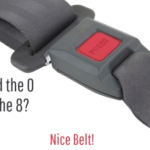The bill with possibly the best name ever placed on a piece of legislation cleared a small hurdle yesterday as it makes another attempt at becoming law in North Carolina. The state’s Senate Health Care Committee yesterday held a hearing and subsequently passed the Medial Debt De-Weaponization Act, becoming the first of four Senate committees that must approve the legislation. A companion bill has been introduced in the state House of Representatives.
A copy of the Senate bill can be accessed by clicking here. A copy of the House bill can be accessed by clicking here.
If enacted — it’s backed by state lawmakers as well as the state’s Treasurer, who has aspirations of running for governor next year — the bill would make North Carolina the second-most protective state of its residents with respect to medical debt.
Among the provisions of the bill are:
- Requiring buyers of medical debt to agree to certain provisions before a sale can be executed.
- Prohibiting taking any extraordinary collection action for 180 days after the first bill has been sent and requiring that consumers receive 30-day notice prior to any extraordinary collection action being taken.
- Collectors would only be allowed to engage in collection activities that are part of the healthcare facility’s billing and collection policy.
- Require collectors to provide an itemized bill if requested orally or in writing
- Requiring collectors to wait one year before reporting any unpaid medical debts to the credit reporting agencies
- Prohibiting the collection of medical debts if the consumer is appealing health insurance decisions
- Limit the interest rate that can be charged on unpaid medical debts to 5%.
“We’re asking you to support being on the right side of history,” said state Treasured Dale Folwell during yesterday’s hearing, according to a published report. “People should not fear getting medical attention in this state and nor should they fear when they open their mail to figure out what things are going to cost them, nor should they fear looking at a piece of paper and not knowing whether they had a tonsillectomy or an appendectomy.”









